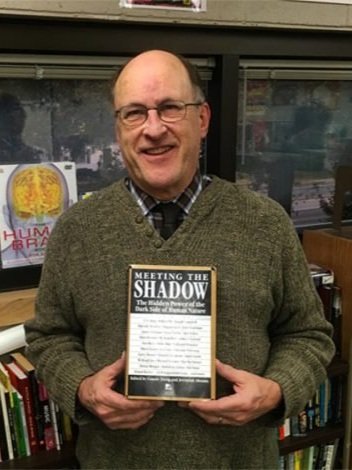Cell Phone Denial
By Bill Bornschein | July 21, 2011
First, a bit of disclosure. Influenced by Neil Postman, I tend to be a late adopter when it comes to technology. Getting the lay of the land and assessing emergent positives and negatives of given technologies has lead to an unusual situation. I don’t own a cell phone and have no desire to possess one. Being a late adopter I fell into the situation naturally and, observing it, decided to maintain it. Recognizing that this is not a luxury available to all, this is not a judgment. The broader philosophical debate is fun but not the point here. Rather, it is to set up the typical dialog which follows below. Before departing this introduction I’d like to share the visceral side of my non-usage. It comes from seeing people talk and text during musical performances, particularly in more intimate club type settings. Singer Jeff Tweedy of the band Wilco expresses the concern with great eloquence. There are even clear tie-ins to Ernest Becker’s work.
In my high school classes, when my students learn of my cell phone choice they are fairly incredulous, wonder tinged with pity. This is certainly understandable insofar as cell phones have constituted so much of their environment. Cell phones wallpaper and mediate their experienced reality. The interesting part of the conversation comes when they invariably ask, “But what about if ………. ?”. There follow the standard emergencies of the broken down car, sick person or simply generic ‘emergency’. My stock answer is to ask what people did before cell phones. They generally fall mute at this point and I leave them to chew on it a bit.
While much has been written about the importance and the pros and cons of social networking through technology, I wonder if Becker has something to add to the conversation. Becker uses Kierkegaard to express the fear and trembling , the terror, that follows from realizing our mortality. He goes on to use psychoanalytic insights to explain how we cope with this terror through various forms of repression.
Returning to my students and their cell phone dependency, could it be the case that their use of the technology marks a kind of repression? Without being reductive and suggesting a simple one to one cause effect relationship, might it not be the case that cell phones can act as a sort of psychological crutch, shielding them from the ‘throwness’ of life? Kierkegaard relates the fictional account of a man who confidently plans a dinner date but who dies in a freak accident before he can attend. His point is that such an event is always possible for any of us and yet we must repress this knowledge and live as though our future actions are guaranteed. To fully accept the conditional nature of our existence might allow the fear and trembling and sickness unto death to overwhelm us. Perhaps for my students the very existence of the cell phone represents a psychological lifeline in the ‘Who Wants To Be A Millionaire’ game of life. Their pejorative use of the word random as in ‘That’s so random’, points in the same direction, a reaction to the dizzying pace of postmodern life.
Another element that may come into play with use of technology is what Kierkegaard refers to as philistinism, a way of repressing the dual terror of life and death by losing oneself in the routine of daily life. To quote Kierkegaard, “Philistinism tranquilizes itself in the trivial.” Technology allows us to bury ourselves in the minutia of trivia in new ways. As the 24 hour news cycle has spawned infotainment, the ever present cell phone has enabled a new dimension of philistinism. Or so the argument goes. Perhaps my instincts on this are off base. Hmmmm…. How could we test this? A death prime followed by a measurement of how quickly one turns to the cell phone? That could be interesting. Incidentally, the title of this post is intended as a double entendre. I can be in denial too.

